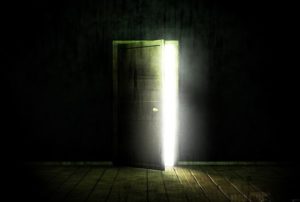Benzodiazepines (BZs) can increase a person’s risk of suicide.

If you are having suicidal thoughts, please reconsider and call a suicide crisis hotline for help. If you or someone you know is suicidal, please contact your local emergency medical services for help as soon as possible. W-BAD is fully aware that many benzo-sick individuals are afraid to seek medical assistance for suicidality because they fear they will be disbelieved or harmed further with more psychiatric drugs. This is a valid and understandable concern. Some benzo-wise therapists report that they remain in constant contact (e.g., on the phone or Skype) with the suicidal benzo-sufferer until the “next of kin” or caregiver can take over with supervision. If you are a caregiver, family member, or friend of someone expressing suicidal ideation from benzodiazepines, please take it seriously as people have taken their lives due to severe withdrawal syndromes.
pleaselive.org – international suicide help
suicide.org – international hotlines
Wikipedia list of suicide hotlines
*Note: worldbenzoday.org is not affiliated with and does not endorse any of the suicide prevention links mentioned here, and is not responsible for their content or advice. They are listed solely as available, existing resources. More help can also be found on W-BAD’s Resources page.
In addition to suicidality being a possible symptom of the very serious benzodiazepine withdrawal syndrome (BWS) itself, benzodiazepines can worsen depression in some people, as the drugs themselves are central nervous system depressants. As a result, use of benzodiazepines can cause depression. The depression may appear for the first time during benzodiazepine initiation. Benzodiazepines are often prescribed for mixed anxiety-depression diagnoses. If the patient already had depression prior to being initiated on benzodiazepines, the pre-existing depression may be exacerbated by the addition of the BZs. However, the drugs can certainly also cause new-emerging depression in people who have no prior history of depression.
Sometimes the drugs precipitate suicidal ideation and tendencies in patients taking them. In Professor C. Heather Ashton’s benzodiazepine withdrawal clinic in the UK, of the 50 patients attending 10 had taken drug overdoses requiring hospital admission. Only 2 of those 10 had a history of depression prior to being prescribed benzodiazepines. Post-withdrawal of the benzodiazepines, the depression was reported to have subsided and none of them took further overdoses in the 10-month to 3.5 year follow-up period after withdrawal.
It is important to note that some of the patients who have chronic depression, who feel suicidal or who attempt suicide while taking the benzodiazepines long-term, are completely unaware that the benzodiazepines are the actual cause. Sometimes they seek medical help because they feel so bad and are drugged further with more dependence- and withdrawal-causing psychotropic drugs, further compounding the problem. They are often misdiagnosed as having “refractory depression” when the real, true cause of their emotional distress is the benzodiazepine drug they’ve been prescribed.
Often times, ill-educated medical professionals will compound this issue by denying that the drugs are capable of causing the depression or by reinforcing to the patient that it’s their so-called “mental illness” (and not the BZ drug) causing depression and that that is a sign that they “need the drugs for life”. If the patient then tries to withdraw from the BZ (usually too quickly, due to personal or prescriber ignorance of the guidelines on how to properly and slowly withdraw) and their depression worsens or withdrawal symptoms emerge, patients are sometimes told by medical professionals that it’s “not withdrawal” and that the symptoms they noticed are “the underlying illness reoccurring” (this happens even in patients who didn’t have an underlying psychiatric illness prior to taking the BZs!).
The Committee on Safety of Medicines in the UK recommended in 1988 that
“benzodiazepines should not be used alone to treat depression or anxiety associated with depression. Suicide may be precipitated in such patients.
The Committee also offered the following precaution:
“Disinhibiting effects may be manifested in various ways. Suicide may be precipitated in patients who are depressed, and aggressive behaviour towards self and others may be precipitated. Extreme caution should therefore be used in prescribing benzodiazepines in patients with personality disorders.”
Similarly, a literature review concluded:
“Benzodiazepines appear to cause an overall increased risk of attempting or completing suicide. Possible mechanisms of prosuicidal effects may include increases in impulsivity or aggression, rebound or withdrawal symptoms, and toxicity in overdose.”
Also, benzodiazepines are responsible for causing emotional blunting or “emotional anesthesia” (inability to feel pleasure or pain) and anhedonia (an inability to feel pleasure) both while taking the drugs, particularly long-term (past 2-4 weeks), and while in withdrawal from the drugs. Such effects are probably related to the inhibitory effect of benzodiazepines on activity in emotional centers in the brain. Once patients withdraw and heal from the neurochemical and neural structure changes brought on by the benzodiazepines, they often express great regret at their lack of emotional responses to family members, like their children or spouses, during the period of time that they were taking the drugs and in withdrawal from them. Taking benzodiazepines long-term (past 2-4 weeks) can also contribute to domestic disharmony and dissolutions of marriage as a result. The Committee on Safety of Mediciness in the UK cautions,
Anecdotally, in the benzodiazepine withdrawal support communities, there have been numerous completed suicides by people either having adverse effects (paradoxical reactions, interdose, tolerance, etc.) or by people who were attempting withdrawal or who had fully withdrawn. Many times, these people have withdrawn too quickly or “cold-turkeyed,” initiating a severe withdrawal syndrome which put them in grave persistent distress.
Compounding the issue, many patients having adverse effects or withdrawing from BZs report feeling hopeless due to feeling invalidated, disbelieved and/or dismissed by the medical community (the very people who they believe are responsible for getting them caught in this cobweb, to begin with) and/or their families and friends. It is for this reason that these patients don’t call suicide hotlines or reach out for help; they know there is little specialized help available and they fear that they will be disbelieved, involuntarily placed into a mental institution, and/or drugged further with more dependence- and withdrawal-causing psychotropic drugs which could worsen their already grave condition.
This is why it is very important that the medical community gets quickly educated on benzodiazepine tolerance, interdose withdrawal, adverse events, withdrawal syndromes, and proper withdrawal protocols and that proper support measures for these patients be implemented. This class of drugs is killing people and, in the taken-as-prescribed population, it’s not typically due to abuse, accidental overdose, or combining them with opiates or alcohol —it’s often due to suicide. The withdrawal symptoms or adverse effects are sometimes so severe that the people tasked with enduring them can simply no longer cope for as long as it takes (for a percentage of people, the syndrome can become protracted and persist for years) for the downregulated GABA and benzodiazepine receptors to upregulate, or to heal, from the BZ-inflicted changes and damage.
Another very common cause of suicide in taken-as-prescribed BZ patients and while experiencing the withdrawal syndrome is akathisia.
Read more:
benzoinfo.org: Benzodiazepines and Suicide

